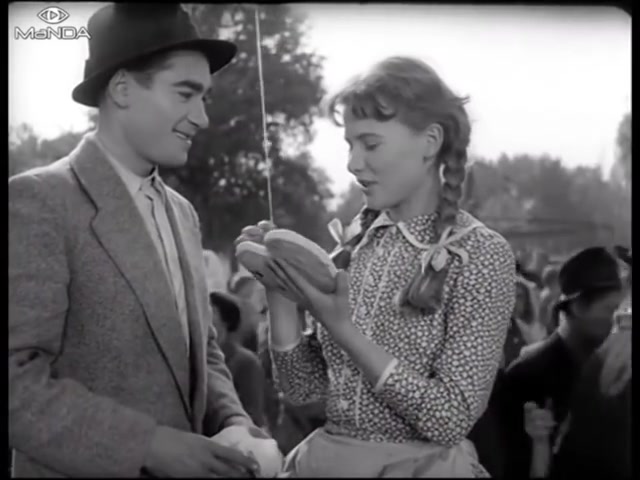Rendező:
Zoltán FábriOperatőr:
Barnabás HegyiZeneszerző:
György RánkiSzereplők:
Mari Törőcsik, Imre Soós, Ádám Szirtes, Béla Barsi, Manyi Kiss, Gyula Bakos, Antal Farkas, József Juhász, Flóra Kádár, Ervin Kibédi, Mária Kovács (több)Tartalmak(1)
Pataki úgy dönt, hogy kilép a szövetkezetből - mert már lehet -, és Farkas Sándorral, a lányának szánt jövendőbelivel együtt újból magángazdálkodók lesznek. Mari viszont Mátét szereti, aki a saját életét összekötötte a szövetkezet sorsával, nem akar a régi módon élni. Egy lakodalomban Máté és Mari egymással táncolnak, boldogok, mint korábban a vásárban a körhintán. Pataki ekkor eltiltja a lányát Mátétól, Farkas meg sürgeti az esküvőt. Mari megtagadja az engedelmességet, mire Pataki dühében fejszét vág a lányához. A fejsze egy fa törzsében áll meg. Mari ezek után világgá indul. Máté a vasúti sínek között talál rá, hazaviszi, és bejelenti Patakinak, hogy feleségül veszi Marit. A konok parasztember kénytelen beletörődni: a család is, a társadalom is visszafordíthatatlanul megváltozott. (Mokép)
(több)Recenziók (1)
This 1950s village drama tells a traditional love story of two young people whose union is not to this around them. The suggestive consuming atmosphere makes you forget the second storyline in which the main character's father joins the cooperative. Among the film's highlights are the meeting of the young people at the fair and their jointly rehearsed dance that precedes their wedding. The delicate emotions expressed on the face of debutant Mari Töröcsik contrast sharply with the raw environment in which her protagonist lives. Imre Soós, on the other hand, forms a decisive solid element in the young couple. It may be symbolic in retrospect that the then-promising Töröcsik is still acting today, both domestically and abroad (for example in Szabó's Sunshine), but this was Soós's penultimate film and he died immediately afterward.
()

